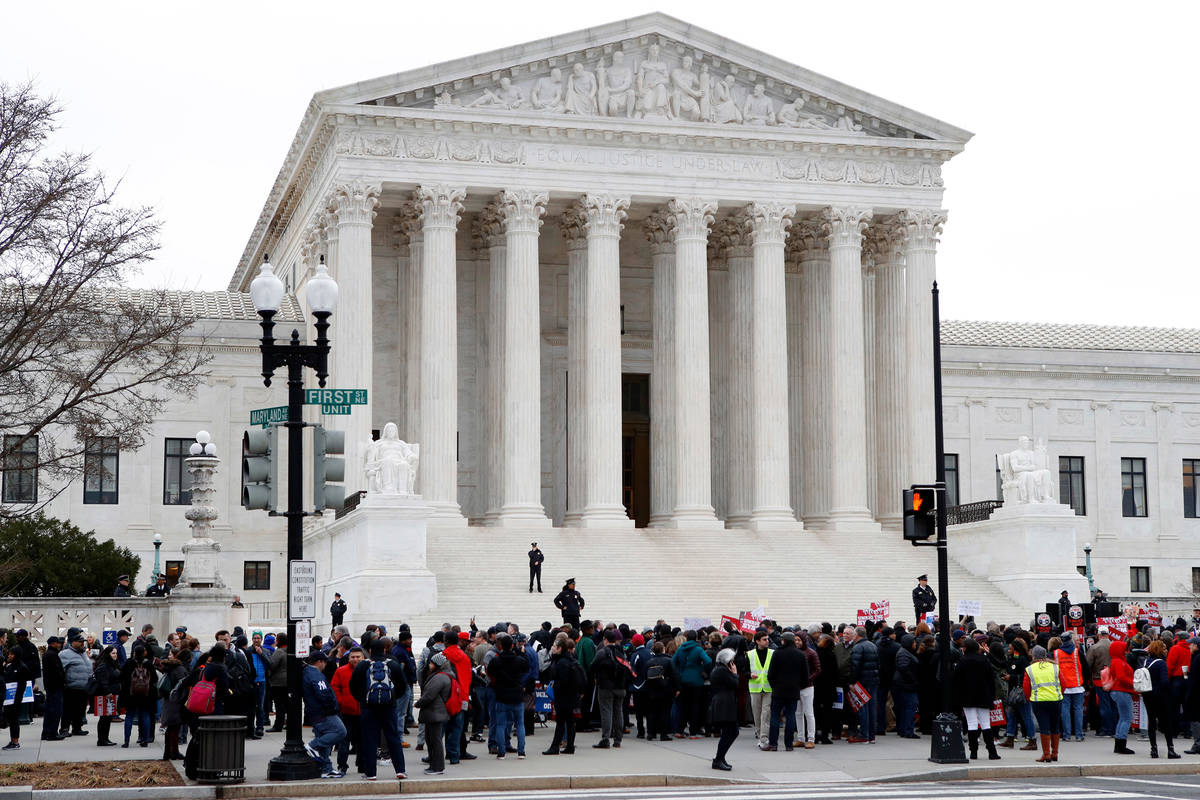EDITORIAL: Fourth Amendment gets a boost from high court ruling
A unanimous U.S. Supreme Court on Monday re-affirmed one of our most cherished freedoms: the right to sanctity in one’s own home. The decision is a victory for the Bill of Rights and a blow to those who would erode our constitutional protections in the name of law enforcement convenience.
The case involved Edward Caniglia of Rhode Island, who, during a 2015 dispute with his wife, retrieved one of his guns, put it on the table and said, “Why don’t you just shoot me and get me out my misery?” After spending the night at a local hotel, Mr. Caniglia’s wife attempted to reach him but was unsuccessful. Worried he might be suicidal, she called the police and asked officers to run by the house.
When the police arrived, they found Mr. Caniglia, who agreed to go to the hospital for an evaluation. He was soon released, but when he returned home, he found that the police had confiscated his two guns. Mr. Caniglia sued, arguing the officers violated his Fourth Amendment rights because they never secured a warrant.
The state prevailed temporarily when the 1st U.S. Circuit Court of Appeals ruled in favor of the officers by applying the “community caretaking” exception to warrant requirements, a loophole established in 1973 in a case involving the police transport of an impounded automobile that had been involved in an accident.
Yet the high court justices overturned the appeals panel, wisely recognizing that expanding such a limited exception to include an individual’s home would greatly dilute the protections Americans enjoy against unreasonable searches and seizures conducted by government agents.
“What is reasonable for vehicles is different from what is reasonable for homes,” Justice Clarence Thomas wrote for the court. He added that “the very core” of the Fourth Amendment is “the right of a man to retreat into his own home and there be free from unreasonable governmental intrusion.”
Indeed, allowing the police to go through an impounded car for which they have responsibility is a far cry from giving officers the green light to enter private homes without a warrant to seize personal belongings. Had the justices adopted the 1st Circuit’s troubled reasoning, the Fourth Amendment would have been maimed beyond hope.
Instead, all nine justices — of varied legal philosophies, it must be noted — reached the same conclusion: The Bill of Rights demanded that officers obtain court permission before they entered Mr. Caniglia’s home to confiscate his weapons, regardless of whether they were acting with the best of intentions. A person’s home remains his castle.




























